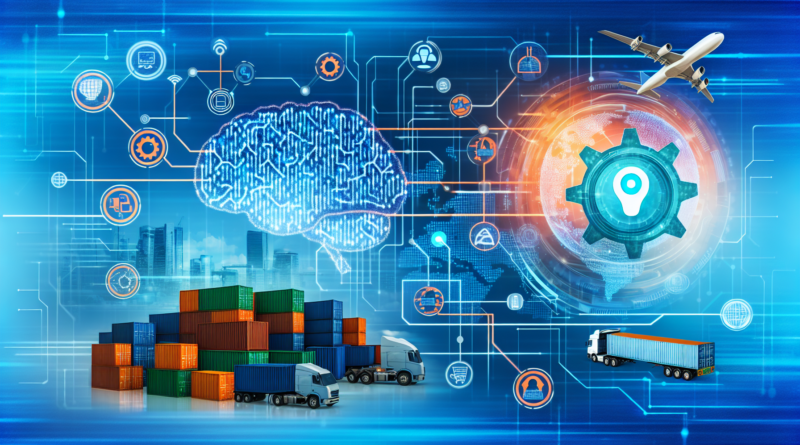Leveraging AI to Solve Logistics Industry Challenges
Leveraging AI to Solve Logistics Industry Challenges
The Role of AI in Logistics Automation
In the fast-paced world of logistics, Artificial Intelligence (AI) is not just a buzzword—it’s a game changer. With its remarkable ability to analyze data and predict trends, AI in logistics enhances efficiency, reduces costs, and solves complex logistical challenges. As the demand for more efficient supply chain solutions increases, the technology transforms how logistics companies operate on a fundamental level.
Transforming Transportation with AI
One of the most significant impacts of logistics automation is on the transportation sector. Transportation AI systems enable companies to optimize route planning, manage fleets more efficiently, and streamline warehouse operations. By doing so, logistics firms can cut down fuel consumption, lower emissions, and ultimately reduce the carbon footprint of transportation activities.
AI-powered systems can predict delays by analyzing factors such as weather conditions, traffic patterns, and other real-time data inputs, thus allowing companies to adapt swiftly. This proactive approach prevents potential disruptions and ensures timely deliveries, enhancing customer satisfaction while maintaining schedules.
Solving Key Logistics Challenges
Despite the technology’s benefits, the logistics industry faces numerous challenges that must be addressed. These include operational inefficiencies, rising fuel costs, and environmental concerns. However, AI in logistics provides solutions:
- Data Management and Predictive Analysis: One of the most daunting logistics challenges is handling vast amounts of data. AI helps businesses make sense of this data through predictive analytics, offering insights that lead to better decision-making. Companies can anticipate demand fluctuations and optimize inventory management, reducing waste and improving service levels.
- Automated Warehousing: In warehouses, automated systems powered by AI can handle tasks such as sorting, packing, and inventory tracking. This reduces human error, increases efficiency, and speeds up the entire process. With AI, warehouses can operate 24/7, adjusting to market demands in real-time.
- Enhanced Customer Experience: AI helps logistics firms provide better customer service by improving accuracy and transparency in shipments. Customers can track their orders in real-time, receiving updates instantly. Enhanced service drives customer loyalty and brand reputation.
Future of AI and Logistics
The future of logistics is inextricably linked to AI. As technology advances, its footprint in the industry will only grow larger. Integrating AI systems with existing logistic frameworks will be crucial for companies that aim to remain competitive. Embracing this change is not about keeping up with trends but about pioneering a more efficient, cost-effective, and environmentally-friendly supply chain.
As AI continues to revolutionize logistics, companies that adapt quickly to technological advancements will lead the pack. By leveraging AI, these businesses not only solve immediate challenges but also pave the way for long-term sustainability in the industry.
👉 For more insights, visit the ClayDesk Blog: https://blog.claydesk.com
AI’s role in logistics will expand as innovation drives new applications and improvements. From transportation AI to logistics automation, the path forward promises even greater efficiencies and smarter solutions to confront ongoing industry challenges. By investing in AI today, logistics firms can secure their place in tomorrow’s market.




